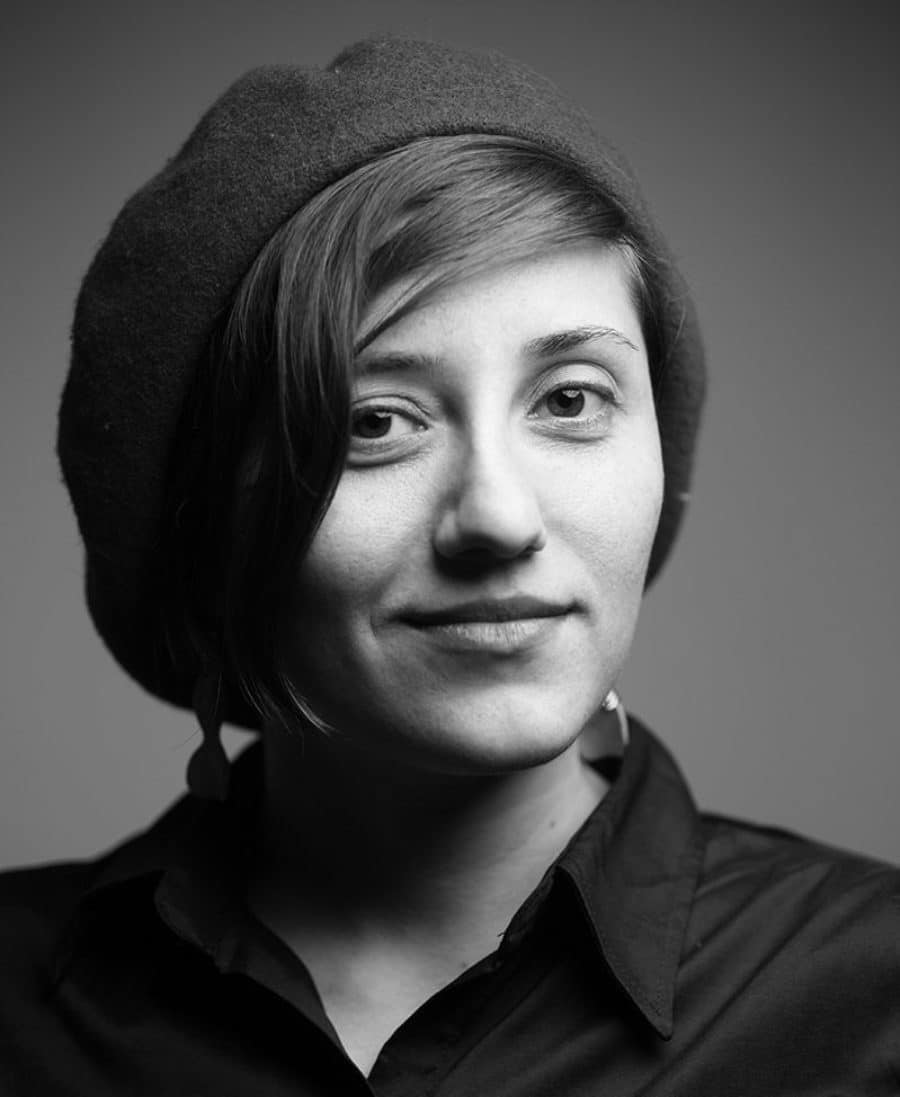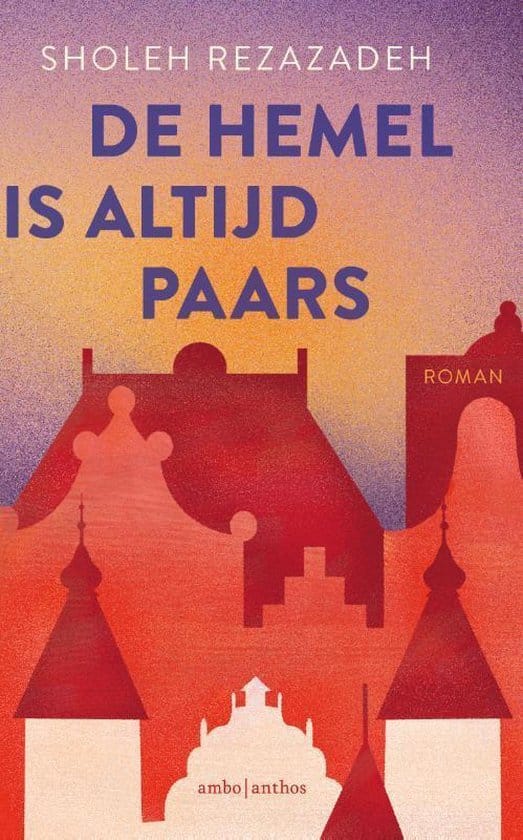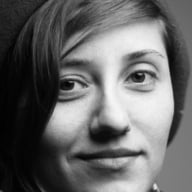How does one become a writer in a different language? We asked Sholeh Rezazadeh, who moved from Iran to the Netherlands in 2015 and made her successful debut in 2021 with a novel in Dutch, De hemel is altijd paars (The Sky is Always Purple). ‘Writing in Dutch is like talking to a stranger you bump into by chance and hope never to see again after your conversation.’
When I first arrived in the Netherlands I had the feeling that people were constantly arguing. Arguing without body language. The sounds were aggressive and far from the soft, sing-song tone of Persian. It was as if I was an animal that had lived in the mountains, in a dry climate, and now had to survive as best I could in the sea. In the sea not only was everyone tall and blond with blue eyes, but they also spoke an incomprehensible language. The words came out of their mouths in bubbles and disappeared before I could follow them.
In the sea I went looking for the thin patches in the water’s surface. I had to find the thinnest spot in the sea, from where I would be able to see the sunlight and breathe oxygen. I had to grope my way in all directions in that sea and examine things until my fingertips discovered the thinnest places. Meanwhile I had to get on with my life and could not have my face glued to that spot the whole time – I had to move. But if I could find, feel and capture that light just for a moment, I could breathe deeply again and go on living.
 Sholeh Rezazadeh
Sholeh Rezazadeh© Afra Afrasiabi
Writing is something like that for me. A way of being able to breathe in a world in which it is difficult to suck up oxygen. Wanting to be a writer in a new world, in a new language, was both difficult and necessary. I could not go on writing in a language that could not be read in the sea. And as someone who wanted to be just a writer and live in the sea, I had to learn the language spoken in that sea. The aggressive, complicated language in which every word had to be masculine, feminine or neuter. With the endless rules which had an infinite number of exceptions. With unwritten rules and hidden beauties that did not just float to the surface.
I began with language lessons. Four days a week in class and seven days a week private study, for nine months. My hungry skin wanted to absorb every bit of oxygen. In the supermarket, on the train I listened intently to all the words that were dancing to music I did not know. For the first few months it seemed as if I would never be able to say, let alone write, a few consecutive sentences without much thought and lots of pauses. When I came across Dutch books written by authors not born or bred in the Netherlands, I regarded them as magic, impossible works. Still, I kept thinking of my own Dutch book that, one way or another, was going to be published.
The more personal the story became, the easier it was to write in Dutch, which was new and strange to me
I studied books that were read to children in the Netherlands, I worked as a volunteer with children, the elderly, immigrants, people who were forgiving about my inevitable language slips. Conversed more frequently with people who spoke Dutch, preferably native or faultless. Went to cultural, literary events where Dutch was spoken, even if I couldn’t understand what they were talking about. Reread books I had once enjoyed in Persian and were also available in Dutch. Went to work in typical old Dutch bars where scarcely a single customer or colleague wanted to speak English. Installed apps on my phone for awkward aspects of the language. Van Dale’s Dictionary. ‘De’ or ‘Het’. I taught Dutch to people who were just about to start learning the language and if I was not able explain to explain something properly, I began studying it in turn.
Within eighteen months I was standing on a platform reading my Dutch-language short story. I had learned the whole story off by heart so that as I delivered it I could look people in the eye and see their reaction. Could those sea creatures understand me? Or did they too just see bubbles coming out of my mouth? I didn’t know if people would understand me and if what I had written was what I had wanted to say. But I saw in people’s eyes that they were listening, intently. And when they came up to me afterwards and told me how much they had enjoyed my story I was happy. As a fish in the sea.
Persian was home, but I needed a break. In Dutch, where I could get drunk, dance and talk nonsense in order to go on living
Less than three years after my arrival I signed a contract for a novel with Ambo | Anthos. At the beginning, I still wrote in Persian, in which it was easy to get down on paper quickly what was in my head, but gradually I wrote more and more often directly in Dutch. The more personal the story became, the more difficult it was to dive deep inside myself, but the easier it was to write in Dutch, which was new and strange to me. Like talking to a stranger you bump into by chance and hope never to see again after your conversation. No judgements, no memories, no pain. That’s how talking to strangers sometimes feels. But Persian was my oldest friend. We knew each other so well that we had no secrets from each other and shared far too many emotions. In Persian I made the acquaintance of stories, poems and literature. Persian was home, but I needed a break. In Dutch, where I could get drunk, dance and talk nonsense in order to go on living.
Now the Netherlands is my second home. Small, without a big garden, without a pond full of old, golden fish, without colourful windows, without roses, without a pomegranate tree. But I like sitting in this little house, with the curtains always open. With the wooden table that always smells of woodland and perhaps a house plant. When I’m sitting in this house, I’m not afraid that strangers will glance inside and if it rains heavily, I light a few candles and it feels sunny again. Sometimes in this house I dream of the other one. And sometimes when I sit on the colourful rug under the sun that wafts in through the brightly-coloured window with its long fingers, I think of the other house where the weather knows nothing about seasons.

De hemel is altijd paars, Sholeh Rezazadeh’s debut novel, was published by Ambo | Anthos (Amsterdam, 2021), and was awarded the 2021 Bronze Owl Public Prize.
Our review can be found HERE.
This article was realised with the support of the Nederlandse Taalunie (Dutch Language Union).












